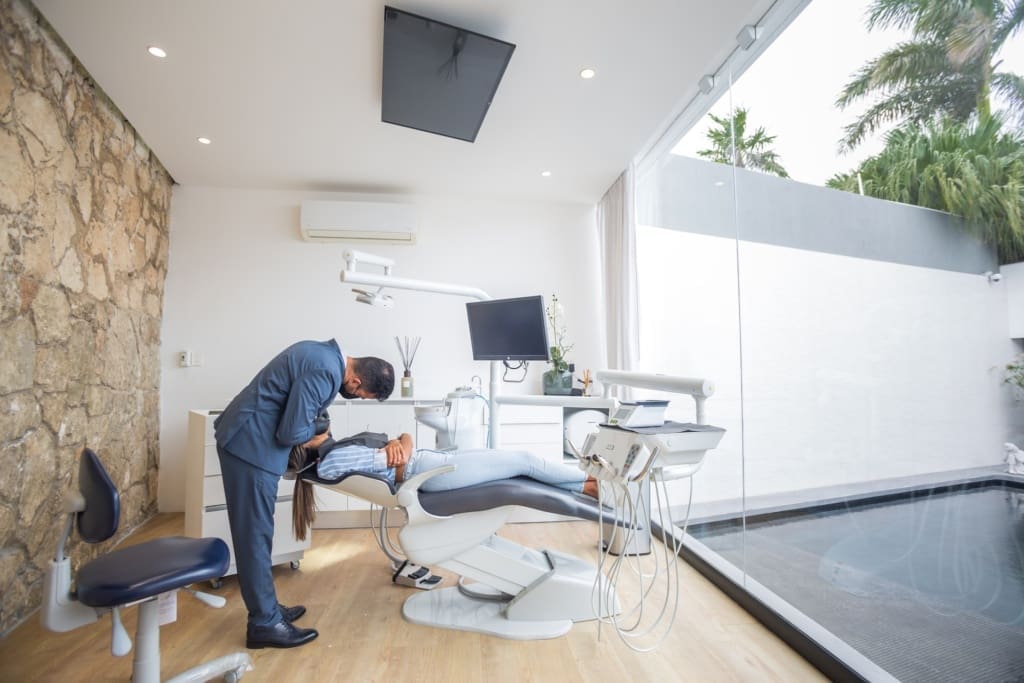Dental anxiety: a phrase that can induce a wave of apprehension in many. It is a common phenomenon that deters individuals from seeking essential oral care, leading to a host of health complications. However, this fear can be alleviated, and herein lies our focus—combatting dental anxiety.
With that in mind, we aim to shed light on techniques to build trust and comfort between dentists and patients, thereby dismantling the barriers of fear and apprehension. It’s not merely about reducing discomfort but fostering a sense of safety, understanding, and respect.
The ultimate goal is to transform the dental clinic from a place of dread into a haven of trust and reassurance. By delving into the psychological aspects of dental anxiety, exploring effective communication strategies, and discussing the role of a nurturing environment, we’ll navigate the path to a more pleasant and less stressful dental experience. The journey of dissipating dental anxiety is not a quick fix but a gradual process, requiring active participation from both the dentist and the patient.
As we venture into this critical topic, our objective is to equip dental professionals with the knowledge and tools to create a fear-free dental milieu and empower patients to take charge of their oral health without fear. Together, we can redefine the narrative surrounding dental visits, making them a more welcoming and comfortable experience for all.
Understanding Dental Anxiety: Causes and Consequences
1. Causes of Dental Anxiety
Dental anxiety can stem from a variety of sources, with some of the most common causes including:
- Past negative experiences: Traumatic or painful dental experiences in the past can contribute to the development of dental anxiety.
- Fear of pain: Many individuals fear the potential pain associated with dental procedures, regardless of whether they have experienced pain during previous treatments.
- Loss of control: Some patients may feel vulnerable or helpless in the dental chair, leading to feelings of unease or uneasiness.
- Embarrassment: For some, the close physical proximity of dental treatments or feelings of self-consciousness about their oral health may contribute to dental anxiety.
Understanding the reasons behind dental anxiety is essential in establishing a trusting, comfortable, and reassuring environment in which patients can receive the care they need.
2. Consequences of Dental Anxiety
The primary consequence of dental anxiety is the avoidance of dental visits and treatments, which can lead to a deterioration in oral health. Untreated dental problems can progress and result in more severe issues, such as tooth loss, gum disease, and the need for more invasive or costly procedures. Furthermore, poor oral health has been linked to other health concerns, such as diabetes, heart disease, and stroke, emphasizing the importance of addressing dental anxiety and maintaining regular dental care.
Dental Anxiety Strategies at Northampton Dental Specialists Group
1. Building Trust and Open Communication
Central to the patient-centered approach at Northampton Dental Specialists Group is building trust and fostering open communication with our patients. Our dental professionals dedicate time to listening to patients’ concerns, understanding their fears, and addressing any questions they may have regarding their dental care. By encouraging transparent dialogue, we establish a foundation of trust and understanding that can alleviate fears and promote a comfortable dental experience.
2. Personalization of Treatment Plans
Every patient is unique, and we recognize that their dental care should be tailored to their individual needs and preferences. Our dental professionals work collaboratively with patients to develop personalized treatment plans that consider their comfort level, dental history, and specific concerns. By involving patients in the decision-making process, we empower them to feel in control of their dental journey, contributing to a decrease in anxiety.
3. Accommodating Individual Comfort Levels
At Northampton Dental Specialists Group, ensuring the comfort of our patients is of paramount importance. We continuously strive to create a calming and serene atmosphere in our practice, utilizing soothing décor and comfortable waiting areas. Additionally, we accommodate individual comfort levels during treatment by offering options such as:
- Pain management: Our dental professionals prioritize effective pain management techniques, including the use of local anesthesia or sedation dentistry when appropriate, ensuring comfortable and pain-free dental procedures.
- Breaks during procedures: If a patient feels overwhelmed or nervous during treatment, we can pause the procedure and take the necessary time to address their concerns, ensuring they feel comfortable before continuing with the treatment.
- Distractions: Providing distractions, such as listening to music or watching TV during treatment, can help ease anxiety and create a more relaxed dental experience.
Overcome Dental Anxiety with Supportive and Personalized Care
By fostering a culture of trust and comfort in dentistry, we can encourage more individuals to seek regular dental care, thereby enhancing oral health outcomes and overall quality of life. This is not just about overcoming fear but about transforming perceptions and experiences of dentistry.
After all, dental anxiety should not stand in the way of achieving optimum oral health and a beautiful smile. At Northampton Dental Specialists Group, previously known as Clayton and Canby Dental, our compassionate and dedicated dental professionals are committed to helping patients overcome anxiety through trust, communication, and personalized care, ensuring a positive and comfortable dental experience.
Schedule an appointment with the best dentists in Northampton today and begin your journey towards overcoming dental anxiety and embracing a happier, healthier smile at Northampton Dental Specialists Group.






